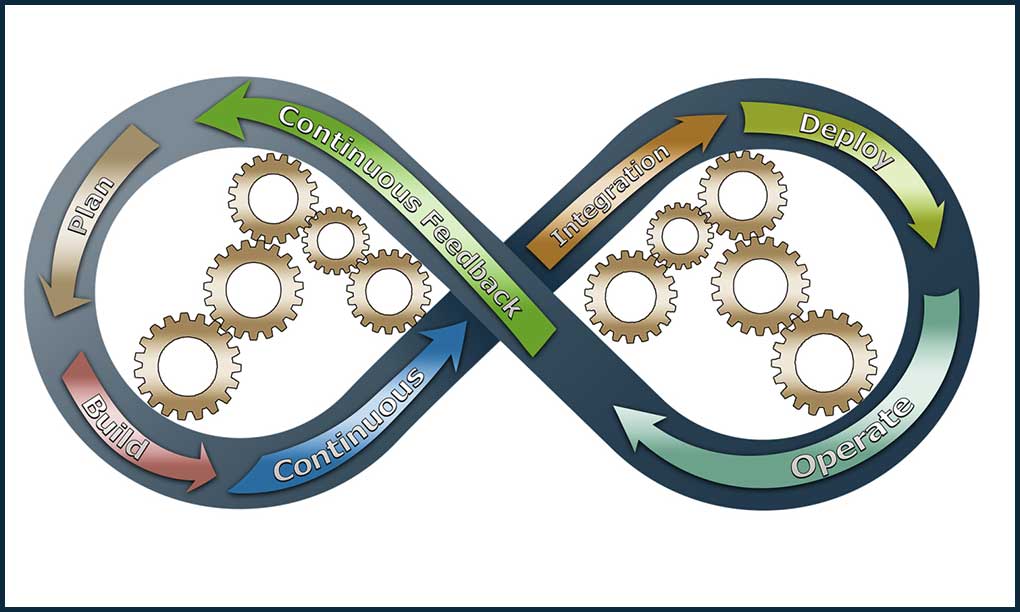
Any product, software, vehicle almost everything even a new recipe before reaching the consumer or before being put into the stage of execution is tested to ensure its quality, functioning and the anticipated results and most importantly the errors and bugs which weren’t apparent in the development stage.
Your DevOps (Development + Operations) Strategy needs testing too.
What is Test Automation?
Just as the name hints-
In software testing, test automation is the use of software
separate from the software being tested to control the
execution of tests and the comparison of actual outcomes
with predicted outcomes.
So to ensure that your DevOps Strategy functions well you must test it, just like cars are tested multiple times with different scenarios before being launched in the market. Your software needs testing too.
Test Automation in DevOps
DevOps is about reducing manual test efforts and hence it demands high quality through automated test beds. Testers, Quality Engineers, Automation Engineers etc are a vital part of DevOps and they play a crucial role in the DevOps cycle especially in the automation circuit. Their roles are reinvented to better equip the cycle. The responsibility of successfully running various test automation strategies comes down to Testers, Quality Engineers and Automation Engineers.
Any software sector especially in the DevOps culture prioritizes concepts that support continuous delivery. Continuous Delivery requires Continuous Testing. Hence, Test Automation is an essential component of Continuous Testing and at large Continuous Delivery. For this it is important for all IT professionals involved in the development field to familiarize themselves with the test automations frameworks, tools and concepts. The more proficient a DevOps team is in automating their testing for greater delivery efficiency, the more valuable they will make themselves to the organization.
If any DevOps Organization operates without Test Automation it is a known fact that they would need more time and money to deliver quality products and services which is not viable in the present and in the long run.

What does a good Test Automation looks like?
- A proficient test should give quick and early feedback about your quality of work
- Must not general false positives
- Under same conditions yet different test runs the results should be congruous, deterministic and repeatable
- First and foremost, task of a good test automation should be to validate the core feature and functioning of your system
- Must put best use of human capital of the DevOps Team by automating as much as possible
Types of Tests You Can Automate
- Unit Tests: Validate single functions, classes or modules of your applications.
- Acceptance Tests: Validate features and benefits your applications provide to their clients.
- Integration (Service) Tests: Validate interplay of your applications and their end to end service flows.
- Performance and Stress Test: Validate how your services scale (or don’t scale) with expected and unexpected client loads. This is particularly important for the most frequently used services.
- Non-Functional Tests: To validate security, availability, capacity and scalability.
Testing is the key to a healthy functioning DevOps Environment. Continuous Testing plays an important role in DevOps given its ability of seamless integration into the process of accelerated development in an agile environment. Since the cooperation of development, operations, and QA teams form the crux of DevOps, Continuous Testing enables teams to work as one cohesive unit.
Although developers are quick enough to check-in their code to trunk and close tasks and tickets because they are the creators but the human nature and error gets in the way. It is often seen that they are reluctant to push the button to release their code in the fear that it might jeopardize the production cycle.
Test Automation is the savior in this scenario. This fear can be overcome after a thorough and reliable test coverage is created to ensure the safety and smooth functioning of all different systems in the DevOps cycle.
This brings us to,
Benefits of Test Automation

- Ensures Continuity
in the Software Development Life
Cycle
Continuity in the testing phase ensures that each value chain fuctions, interacts and delivers smoothly with each other and with the whole system. - Faster
Feedback
Quick validation in different phases, improves communication among coders, designers, and Product Owners, and allows potential glitches to be immediately rectified. All this results in increased efficiency. - Accelerated
results
Due to the quick implementation of automated testing, plenty of time is saved for detailed and complex system. - Reusability of the
Automated tests
Automated test cases are reusable and can hence be utilized through different approaches. The configuration and setup is relatively easy - Earlier Detection of
Defects
Tests are capable of detecting and reporting defects and inconsistencies quicker than human-generated testing this gives us the opportunity to quickly resolve issues before sending it further - Faster
Time-to-Market
Saves time and speeds up the delivery, hence test automation greatly reduced time-to-market of an application by allowing constant execution of test cases. Once automated it runs longer and faster than manual testing. - Reduced Business
Expenses
It comes as no surprise that automated testing saves companies many a penny. This is predominantly due to the sharp drop in the amount of time required to run tests. It contributes to a higher quality of work, thereby decreasing the necessity for fixing glitches after release and reduces project costs.
In conclusion, testing is more important and requires far more credit than we think. It is as simple yet severely essential as taking a mock test before the final exam or doing regular fire drills. These make us more prepared, highlights our pitfalls and defects and makes us more efficient for what is to come and polishes our expectations and anticipations. Create a thorough testing environment if you haven’t already and if you are a developer it would be better to equip yourself with the knowledge of Test Automation.

 Workshop
on Certified DevOps Foundation
Workshop
on Certified DevOps Foundation Workshop
on Certified DevOps Professional
Workshop
on Certified DevOps Professional Get
DevOps Certified
Get
DevOps Certified
Very well and correctly written testing is more important and requires more credit.
With DevOps Continuous Testing is the key to succes,without quality DevOps will fail its real essance that is faster to market.